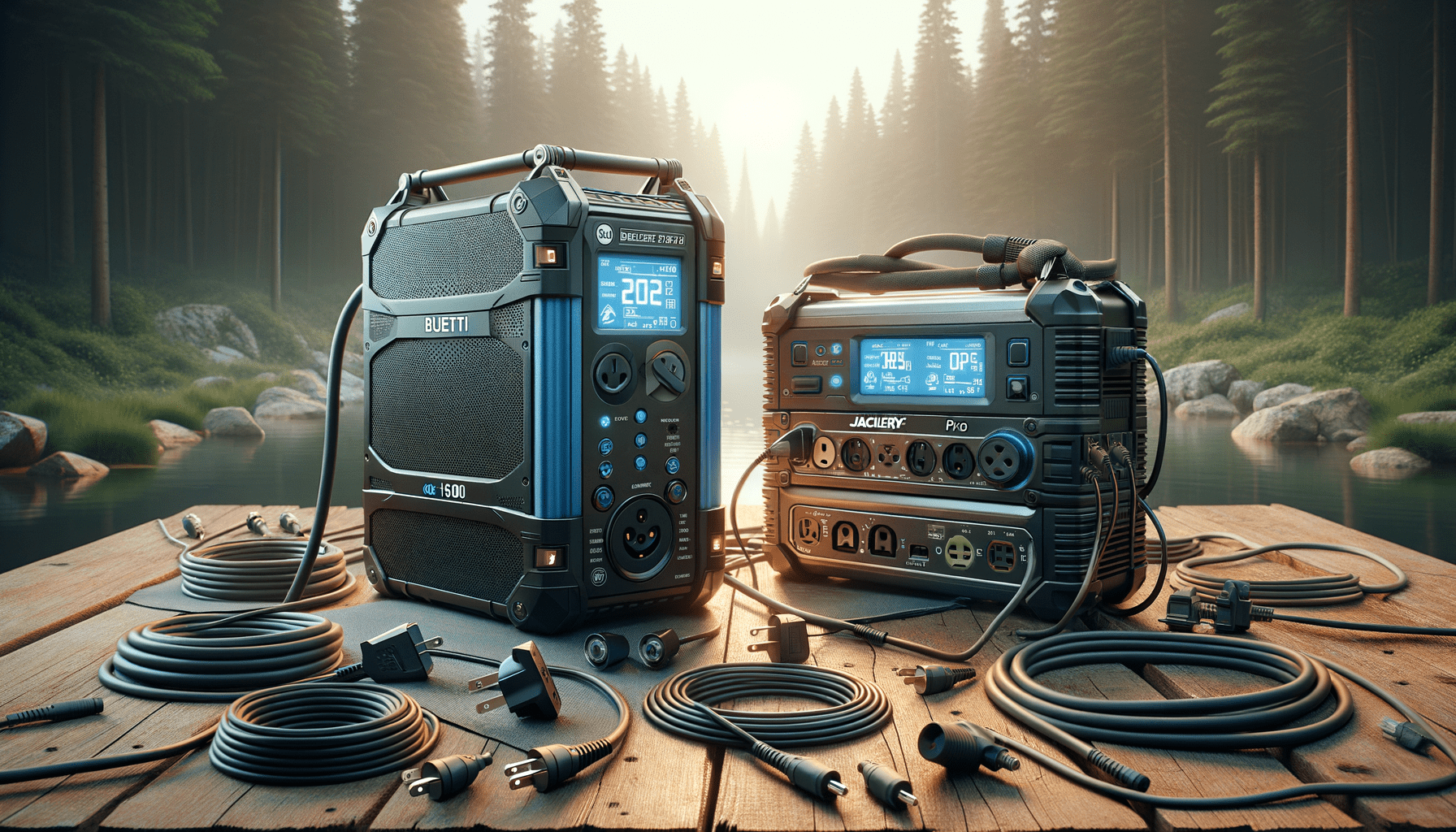When it comes to portable power stations, the market offers a variety of choices to keep your devices running while you’re off the grid. Two prevalent options are the Jackery Explorer 240 and the Bluetti EB70S. In this article, we’ll delve into a detailed comparison to help you decide which might suit your needs the best. Whether you’re camping, participating in outdoor activities, or looking for backup power options, understanding the technical specifications and features of these power stations is crucial.
Battery and Power
The Jackery Explorer 240 comes equipped with a 240Wh lithium-ion battery, which can handle 200W of continuous power and has a peak of 400W. In contrast, the Bluetti EB70S boasts a more robust 716Wh LiFePO4 battery, with a continuous power capability of 800W and a surge peak of 1400W. For those needing to power more demanding devices, the EB70S is clearly the heavier lifter in this category.
Charging Options
Both models offer multiple ways to recharge. The Explorer 240 can be fully charged in approximately 5.5 hours using a wall outlet, takes about 6.5 hours via car outlet, and around 5 hours if using the optional SolarSaga 100W solar panel in full sunlight. The EB70S has a slightly faster recharge time of 4-4.5 hours via wall or solar inputs, showing a slight advantage in recharging speed.
Portability and Design
The Jackery 240 weighs in at a lightweight 6.6 lbs, making it extremely portable. Bluetti’s EB70S is heavier at 21.4 lbs, which is still reasonable but might be a bit bulky for some. Design-wise, both power stations are well-constructed and feature an ergonomic handle for ease of transport.
Output Ports
In terms of outputs, the Explorer 240 has a single AC outlet, one DC car port, and two USB-A ports. Meanwhile, the EB70S offers four AC outlets, a car port, two 100W USB-C ports, two USB-A ports, and several DC outlets, including a wireless charging pad. The EB70S stands out with more connectivity options, especially for those with USB-C and wireless charging devices.
Compatibility and Use Cases
If you’re looking to run small appliances or charge personal electronics like phones and laptops, the Explorer 240 is well-suited with its varied output options. However, the higher capacity and output options of the EB70S make it a more versatile choice for powering a wider range of electronics, including more energy-intensive appliances.
Safety, Warranty, and Reliability
Both models incorporate a Battery Management System for protection against common electrical issues. Jackery offers a 2-year warranty, with an additional year if purchased from their official site. Bluetti backs the EB70S with a 2-year warranty as well. These features assure customers that both companies stand behind the quality and reliability of their products.
| Spec | Jackery Explorer 240 | Bluetti EB70S |
|---|---|---|
| Battery Capacity | 240Wh | 716Wh |
| Charge Time (Wall Outlet) | 5.5 Hrs | 4-4.5 Hrs |
| Weight | 6.6 lbs | 21.4 lbs |
| AC Outlets | 1 | 4 |
| USB-C Ports | 0 | 2 x 100W |
| Car Port | 1 | 1 |
| Warranty | 2 + 1 Year | 2 Years |

Additional Considerations
When selecting a portable power station, think about the specific devices you need to power, as the range of ports and overall power capacity can greatly affect usability. Also consider the environment you’ll primarily use it in, as this may affect charging times and feasibility.

We hope this comparison helps you make an informed choice between the Jackery Explorer 240 and the Bluetti EB70S portable power stations. Both are solid options, and the best one for you will depend on your particular power needs and portability requirements.


Leave a Reply